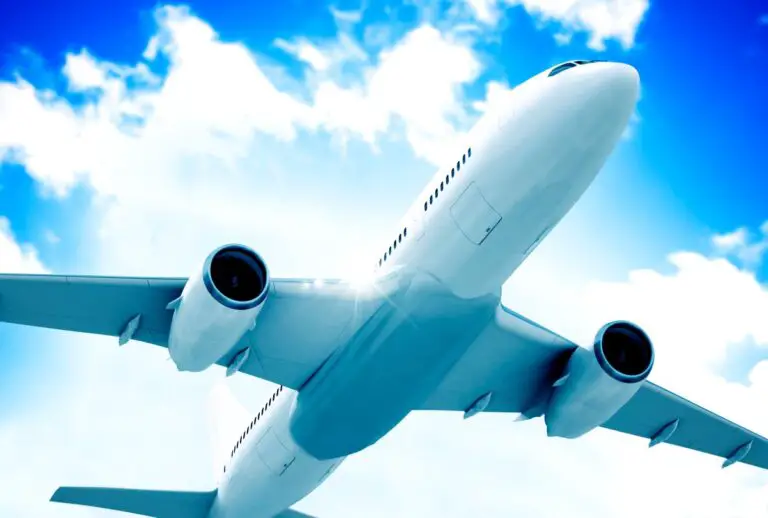Flying After Having a Wisdom Tooth Extraction
If you are like most people, a sense of dread may fill your heart, as you wonder if you will get that look from your dentist at your next appointment telling you that you need to get your wisdom teeth removed. Then there is the moment when you look at your dentist and ask with a slight grimace, “Is it really necessary to get them removed? Is recovery gonna stop me from doing things?”
Wisdom teeth are one of the most common dental problems that people will face during their lifetime. While it’s not considered to be an urgent issue, there is a high probability that someone can have issues with these teeth at some point in time. The extraction process has become a normal procedure over just a couple of decades, but that still doesn’t change the way people feel about getting the procedure done.
So, how soon can I fly on an airplane after having a wisdom tooth extracted? Although it is safe for you to fly 24 hours after having your wisdom teeth extracted, you will likely want to wait at least 7 days after wisdom tooth removal due to recovery time. It is important to consult with your dentist if you are planning on flying shortly after having your wisdom teeth removed.
Wisdom teeth are also known as third molars and usually begin to grow in the late teen years, between 17 and 21 years of age. The reason why you have them is that our ancestors needed them way back when for chewing on raw meat and crunching bones or whatever it was they did back then.

Why Are Wisdom Teeth Removed?
Well, wisdom teeth are being removed more frequently now because it’s no longer necessary for us to have them. Wisdom teeth are the last set of molars to develop in a person’s mouth. The problem is that our jaws are no longer large enough to accommodate this particular kind of molar.
That’s when you start seeing problems like overcrowding, infections, and even when they become impacted. Impacted wisdom teeth come in when the tooth fails to break the surface when it begins to push through the gums, which then causes you discomfort and even pain.
If these wisdom teeth are not removed or taken care of, they can cause issues for your gums and other teeth! The best way to deal with them is to have them removed when you are young. Most of the time they’re just in the way and they become a painful nuisance, so we get them out.
Wisdom Teeth Removal Expectations
Wisdom teeth removal is one of the most common types of surgery performed in developed countries today and is usually a very quick procedure. In some cases, wisdom teeth don’t grow straight. Instead, they may grow sideways or even backward. This can lead to several problems as time passes.
Some possible symptoms associated with wisdom teeth include pain, swelling, and infection near the gum line around the tooth; tooth decay; cysts; sinus infections; damage or fracture of other teeth near impacted wisdom teeth.
This could lead to the displacement of those teeth or a cyst or tumor formation around them. These symptoms will vary from one person to another and also on the wisdom tooth itself.
Having Your Wisdom Teeth Removed
In most cases, several factors will play into whether you decide to have your wisdom tooth surgically removed from your mouth or try out some natural remedies at home instead. If you opt for surgery, then you’ll be visiting a professional who’s been trained specifically in this area of dentistry.
When you get the final go-ahead from your dentist about getting rid of your wisdom teeth, then chances are that you will need to be fully aware of what to do before and after the procedure. Once the surgery is over, you will have to pay specific attention to caring for your mouth.
Aftercare for this type of operation includes at least one consultation with a professional, several phone calls home if needed, and possible prescriptions. However, several concerns can present themselves during aftercare, and doing any sort of strenuous activity such as traveling is something you want to carefully consider.

Flying in An Airplane After Wisdom Tooth Removal
There is some debate amongst dentists about when it’s safe for a person to get on an airplane after having a wisdom tooth extraction. The typical recovery period for most people is around 7 days, though this can vary depending on various factors such as if there was bone removal or other complications during surgery.
Dentists will also advise taking precautions due to some cases of dry socket (3% of cases) and infection (less than 2%). Furthermore, a person should avoid putting any strain on their jaw or yawning too hard during the initial few days after having their wisdom tooth removed.
Also, chewing on your side is discouraged immediately following surgery as well. And, make sure you do not drink any alcohol. This can hinder your recovery time, and also increase the chance of bleeding again. Alcohol does thin out the blood, so waiting until your follow-up appointment is another good idea before drinking alcohol again.
A lot of dentists usually advise their patients to wait at least 24 hours after the surgery before they get on an airplane. However, if you are planning on flying soon after dental extraction, waiting a couple of days for the swelling and pain to go down is suggested before boarding a plane.
This is because changes in altitude and air pressure can cause you to have an unpleasant and uncomfortable experience – one that could include a dry socket which will cause immense pain and relief with over the medication being futile.
Preparing to Fly After Wisdom Tooth Extraction
First, make sure that you have your pain medications with you in case there is any need to take them. This includes over-the-counter and natural remedies if need be.
Keep them with you in your carry-on, and be sure to take a dose before you get on the plane so that the ride is comfortable from the beginning.
Second, remember that sitting in a confined space can cause some serious problems with your recovery. In case you do wait longer than 24 hours, then make sure that you’re keeping yourself as comfortable as possible. If there is any discomfort at all, then be sure to contact your dentist right away.
Third, be careful of the foods that you eat while traveling. There are sure to be plenty of foods that will be tempting to eat, but you will need to eat soft foods or liquid foods such as soups and broths.
Avoid straws because the air that you suck up through the straw can lead to a higher possibility of a dry socket.
Fourth, bring extra gauze. The area around the extraction points is extremely sensitive and may still have some bleeding and oozing that will occur. So, yes, you may look like a chipmunk and sound a little funny talking, but it’s better to have the gauze there as a backup.
If you think need to, you can always ask the flight attendant for ice to help with any discomfort during the flight which will help with swelling and inflammation.
Wisdom Tooth Recovery Tips
Remember to take it easy after you get out of the plane. You may have made it through the flight, but you still want to take care of yourself.
Go for a light walk, drink lots of fluids, and eat soft foods. Eat some soup or broth. Drink plenty of fluids so that you can keep yourself hydrated during the recovery process.
It will help your recovery progress if you can avoid doing any strenuous activities immediately following your flight. Make sure you brush and floss your teeth carefully after you get settled. Also, put ice on the side that was operated on for swelling pain relief.
In most cases, patients have their stitches removed about a week after surgery. However, not paying attention to the care needed during travel can cause some hindrances.
Keep an eye on them and make sure they do not get too red or irritated. If this happens, then contact your surgeon immediately to figure out what needs to be done to help you out wherever your destination has taken you.

In Conclusion
Sure, you can fly after you’ve had your wisdom teeth removed, but it is up to you to decide whether that is a wise choice.
Wisdom teeth removal has been around for a long time and is probably one of the simplest surgeries one can have, but we don’t want to take it lightly.
Flying can present some issues if you aren’t prepared; so the best thing is to be prepared ahead of time and let your dentist know so they can help provide the best care for you.
Hopefully, when you visit the dentist next time, you won’t have to worry about having the ‘wisdom teeth removal‘ talk, but if you do, you can rest assured that you are ready for it–and you’ll be ready to tackle whatever comes after; including flying the friendly skies.


